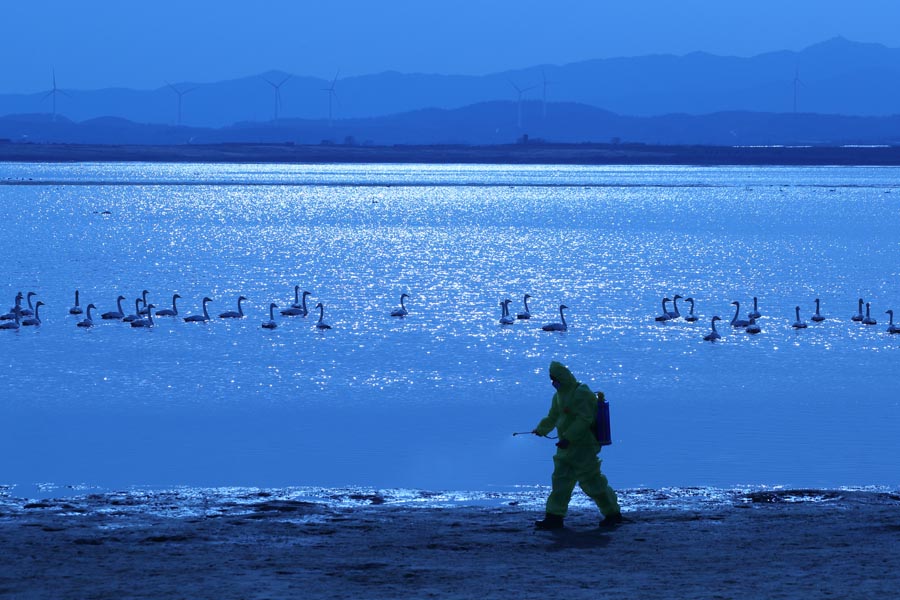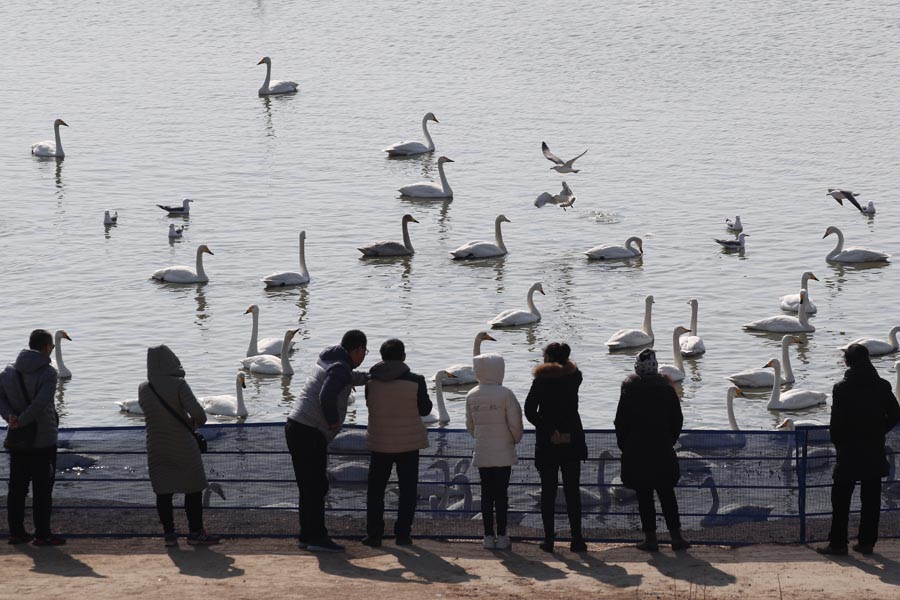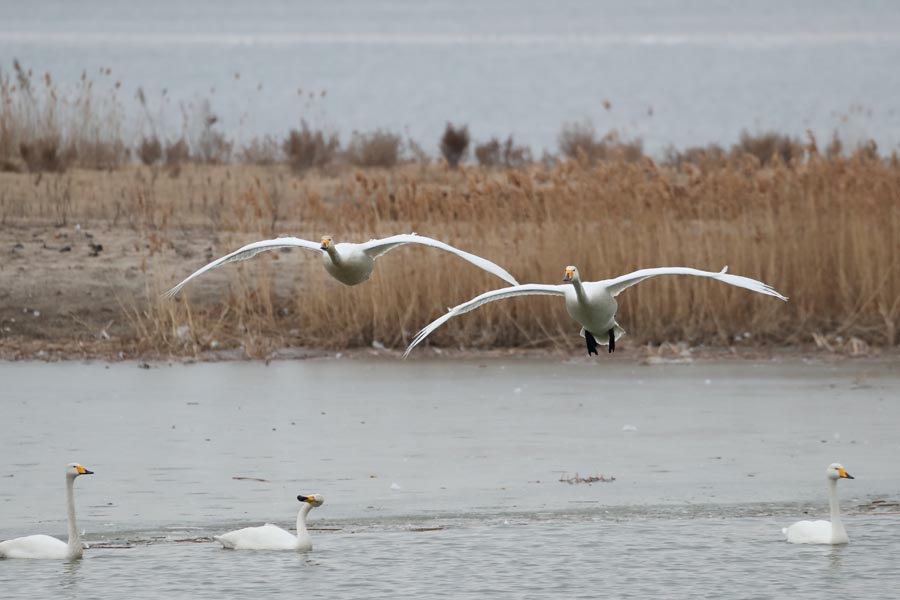
A conservation officer disinfects the areas surrounding Swan Lake. (Photo: China Daily)
From November to April each year, more than 10,000 of the birds fly in from Siberia and other regions
Rongcheng, Shandong province, is located at the easternmost tip of the Shandong Peninsula, and it is home to the winter habitat of the Great Swan.
The Rongcheng Swan Lake is known as the "Hometown of the Great Swan" and is an important relay station for the southward migration of the birds.
From November to April each year, the swans fly in from Siberia and other regions, and they stay there in winter. Statistics show that the number of swans there is more than 10,000.
Every winter, more than 100,000 tourists visit the lake.

Every winter, more than 100,000 tourists visit Rongcheng Swan Lake in Shandong province. (Photo: China Daily)
Watching the swans, writing about them and painting them, besides taking photographs is now common and Rongcheng now annually enjoys a winter "swan tour" boom.
Now, in addition to the swans in Yandunjiao, Swan Lake, Sakura Lake, Sanggou Bay Urban Wetland Park and Shidao Bay, you can also see black-tailed gulls and other birds.
The swans are a part of everyday life in the city, and their images are everywhere - from small souvenirs, paper-cutouts, on stones, and there are many homestays that are themed on swans.
The presence of the swans is mainly due to the improved natural surroundings.

Swans fly over the Swan Lake. (Photo: China Daily)
To keep things pristine, every year the conservation department of Swan Lake disinfects the areas surrounding Swan Lake. And the staff also regularly collect
swan feces to check on the health of the birds.
When the lake is frozen, the staff puts food on the surface of the lake.
Rongcheng and the Ocean University of China jointly completed the restoration of eelgrass in the area, and have launched a number of other projects such as the restoration of Lanhe Wetland and the restoration of the north coast of Rongcheng Bay.


